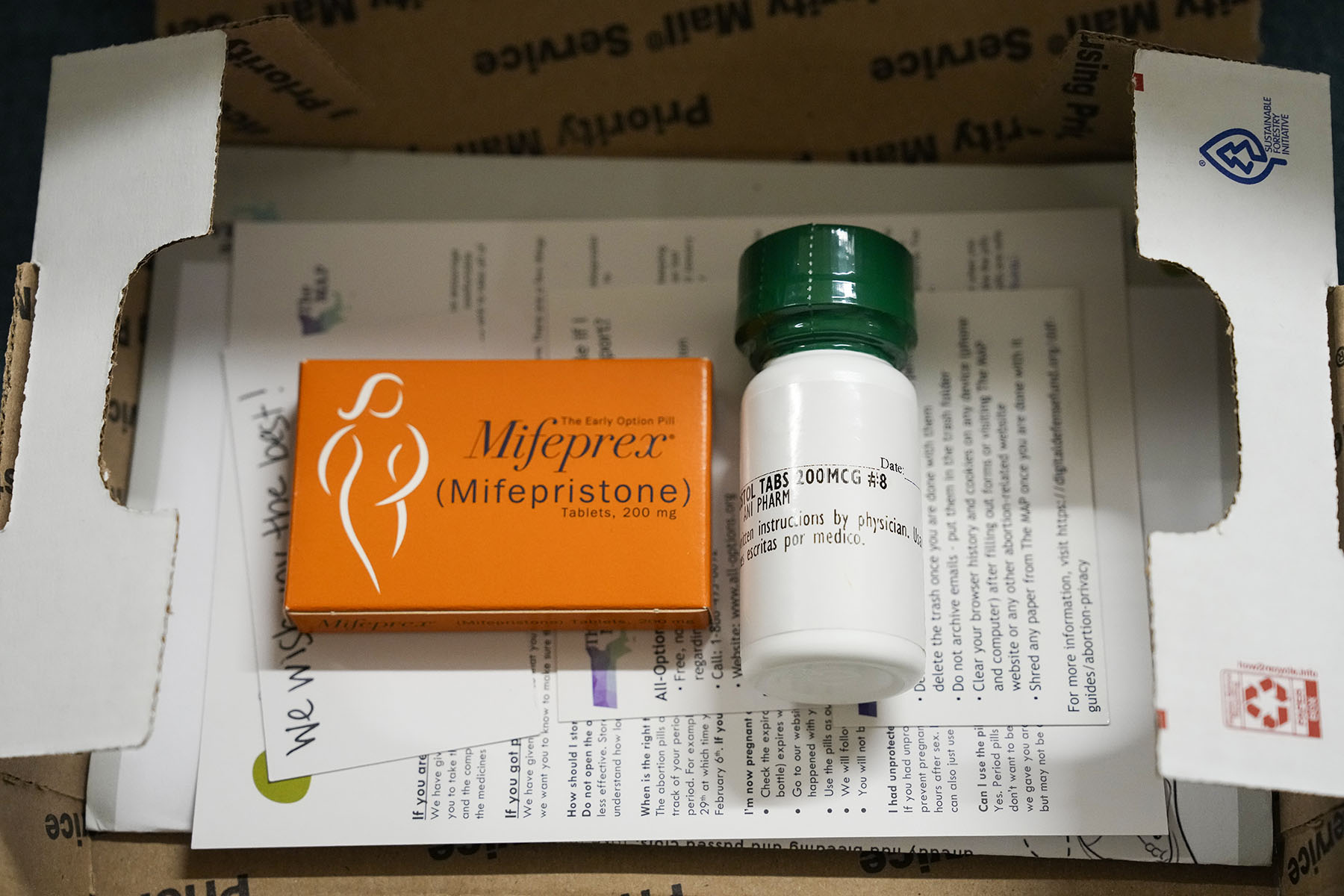Your trusted source for contextualizing the news. Sign up for our daily newsletter.
With former President Donald Trump open to restricting access to a major abortion pill, physicians are steeling themselves if he wins for the possible end of legal telehealth abortion — a method that has allowed thousands of patients to circumvent state bans over the past two years.
Abortion opponents have said stopping the mailing of medication is their top priority, though they have struggled to devise a legal strategy to do that. For now, many are pinning their hopes on a Trump presidency, and an executive branch more willing to curb access to abortion.
Trump has said he wouldn’t try to pass a national ban, which is not likely to have the votes to pass Congress, anyway. But at a confusing press conference last week, he said he would not explicitly rule out using executive power to rescind the approval of mifepristone, one of two drugs used in medication abortions. Trump was asked specifically whether he would direct the U.S. Food and Drug Administration to take the pill off the market, making it unavailable. His reply was unclear — but he expressed openness to policies that “will supplement” state abortion bans.
Trump’s running mate, Sen. JD Vance, tried to walk back those comments over the weekend. But Vance opposes abortion rights, and has also argued in favor of more national restrictions.
Health care providers, who have come to rely on the medication, are preparing for restrictions if the former president is re-elected. Many pointed to the proposals outlined in Project 2025, the conservative policy blueprint produced by the Heritage Foundation, a right-wing think tank, and authored by several former Trump advisers.
In addition to removing mifepristone from the market, the authors endorse leveraging the Comstock Act, an 1873 anti-obscenity law that has not been enforced in decades, which prohibits mailing “indecent or immoral” materials. The law could, at the very least, be used to ban the mailing of drugs that could induce abortions — mifepristone, but also misoprostol, the other drug in the two-step regimen.
Trump has declined to answer questions about whether he would enforce that law if president. But in January, Vance signed onto a letter to the Justice Department endorsing that interpretation of the law.
“If we are in that world, the effects are quite devastating,” said Greer Donley, an expert on abortion law and professor at the University of Pittsburgh.
Telehealth abortion has become far more common in the past few years, thanks to data accumulated since the COVID-19 pandemic showing the safety and efficacy of providing abortion pills through virtual care. Its use has skyrocketed since Roe v. Wade’s overturn because of “shield laws,” which have passed in a handful of states with liberal governments. The laws guard health care providers who prescribe and send abortion pills to patients in states where the procedure is banned, though this protection applies only as long as providers don’t leave the state with the shield.
Data from the Society for Family Planning suggests that this year 9,200 telehealth abortions were provided under shield laws between January and March. The organization’s researchers estimate that between the start of 2023 and March 2024, about 65,000 people circumvented their state’s abortion restrictions through shield law-backed telehealth. For example, each month Aid Access, one such organization, sends pills to about 2,000 patients in Texas, the largest state with a near-total ban.
But telehealth still reaches only a fraction of people seeking abortions in states with strict bans. Many people still don’t know this option exists. In Florida, where a 6-week ban took effect in May, relatively few people are ordering the medications, according to data shared by Aid Access and another shield-law backed health provider, the Massachusetts Medication Abortion Project.
Recent survey data from KFF, a nonprofit health policy research, polling and news organization, found that the vast majority of women between ages 18 and 49 — the demographic most likely to get an abortion — don’t know the pills are available online. Of those who live in states with bans, only 10 percent had heard that an online option exists. People with lower incomes are also less likely to know they could order pills.
“The information is not reaching everybody,” said Usha Ranji, associate director of women’s health at KFF.
Because it relies on the mail, the resuscitation of the Comstock Act could cut the growing movement off at its knees.
“I don’t know how one can plan for the havoc a presidency by them would cause,” Linda Prine, a New York-based physician with Aid Access and co-founder of the Abortion Coalition for Telemedicine, said of the Trump-Vance ticket.
But it’s difficult to prepare for what a future Trump administration would look like, and how providers would respond if, roughly a year from now, shipping pills is no longer legally viable.
“There are so many unknowns,” said Angel Foster, a physician who helped found the Massachusetts Medication Abortion Project. “If the Trump and Vance ticket is elected, do these things get operationalized on Day 1? Or is it a phasing period that takes months?”
Efforts to bar telehealth would probably face legal challenges. But in the short-term, Donley said, the risks of continuing to provide care — and relying on the protection of shield laws — would likely be too great.
“Given the risks, if I was advising someone, I would say if there’s a Trump administration and a pronouncement they’re going to enforce Comstock, the physicians need to stop shipping pills,” she said.
Other avenues for abortion do exist: Hundreds of thousands of people have traveled out of state for the procedure since Roe’s overturn. And community networks distribute abortion pills without the protection of shield laws. Those could take on greater relevance if telehealth is no longer legally viable, Donley said.
A recent study from the medical journal JAMA Network Open, which examined trends in so-called “self-managed abortion,” found that people attempting to induce their own abortions were most likely to use non-medication methods: taking herbs — some of which can work but have not been as thoroughly studied as pills — or hitting themselves in the stomach. (The study also found that more people used medication in 2023 than had a year prior.)
For now, shield law-backed providers are trying to build broader awareness that their service exists, particularly for patients in states with abortion restrictions.
“We are just moving forward with the expectation that science and sanity will reign supreme for as long as possible, and just trying to provide high quality care and get information out as much as possible,” said Foster. “If we do have to pivot a year from now, we will do so.”
Her organization is building relationships with grassroots organizations, such as community-based abortion funds and state groups that promote reproductive rights, in the hopes that some might tell more people about the services groups like hers provide. That’s difficult. Many abortion funds in states with strict bans — such as Florida — worry that they could be legally vulnerable if they point pregnant patients in this direction.
“It’s a feature, not a bug of these kinds of bans and the attitudes of state governments — whether it’s Florida or Texas — to create fear,” Foster said. “That chilling effect is real. And the laws have been designed to create that.”
To check your voter registration status or to get more information about registering to vote, text 19thnews to 26797.





